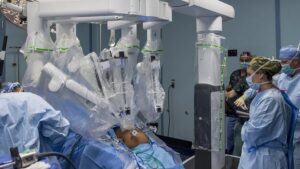
Introduction (50 words): Back pain and nausea are two distinct symptoms that can often occur together, perplexing those who experience them. While they may seem unrelated, there is a fascinating link between these two discomforts. This article delves into the various causes and possible treatments for back pain accompanied by nausea.
Understanding the Connection (100 words): Back pain and nausea can share a connection through several conditions, including musculoskeletal issues, gastrointestinal problems, and neurological disorders. Musculoskeletal causes, such as muscle strains, spinal misalignments, or herniated discs, can lead to nerve impingements, resulting in back pain that triggers a nauseous response. Gastrointestinal problems like acid reflux, gastritis, or gallbladder issues can also induce back pain and concurrent nausea due to the close proximity of organs in the abdominal and back regions. Additionally, certain neurological disorders affecting the central nervous system can manifest as both back pain and nausea.
Musculoskeletal Causes (100 words): Musculoskeletal causes of back pain with nausea often involve strains or injuries to the back muscles or spinal column. These injuries can be the result of poor posture, sudden twisting or lifting motions, or trauma. Muscle spasms or inflammation in the affected area may irritate nearby nerves, triggering both back pain and nausea. Seeking proper diagnosis and treatment from a healthcare professional, such as a chiropractor or physical therapist, can help alleviate these symptoms through targeted exercises, manual adjustments, and other therapeutic techniques.
Gastrointestinal Factors (100 words): Gastrointestinal issues can contribute to back pain accompanied by nausea. Acid reflux occurs when stomach acid flows back into the esophagus, causing a burning sensation in the chest and back. The discomfort from acid reflux can induce nausea, which often exacerbates the already-present back pain. Similarly, gastritis, an inflammation of the stomach lining, and gallbladder problems can radiate pain to the back and trigger feelings of nausea. Lifestyle modifications, dietary changes, and medications prescribed by a gastroenterologist can help manage these gastrointestinal conditions and alleviate associated symptoms.
Neurological Factors (100 words): Certain neurological disorders affecting the central nervous system can present as back pain with nausea. Conditions such as migraines, multiple sclerosis, or fibromyalgia can cause widespread pain, including the back, along with accompanying nausea. The precise mechanisms behind these connections are not fully understood, but they may be linked to the disruption of pain signals and neurotransmitter imbalances. Seeking medical evaluation from a neurologist can help identify and manage these neurological conditions. Treatment options may include medication, lifestyle changes, stress management techniques, and alternative therapies like acupuncture or physical therapy.
Conclusion (50 words): Back pain and nausea may seem unrelated at first glance, but they can often occur together due to various underlying causes. By understanding the complex connections between musculoskeletal issues, gastrointestinal problems, and neurological disorders, individuals experiencing these symptoms can seek appropriate medical attention and embark on the path to relief and improved well-being.








